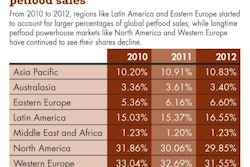While some issues arising from last week's American Veterinary Medical Association conference -- like whether veterinarians receive enough education on pet nutrition -- might spur controversy, I think everyone can agree that research on the benefits of the human-pet bond, presented during the accompanying conference of the International Association of Human-Animal Interaction Organizations (IAHAIO), is a positive development for pets, people and the pet industry.
Presented during IAHAIO's triennial conference, in Chicago, and partially funded by Mars Petcare and the Waltham Centre for Pet Nutrition, the research highlighted how interactions with animals positively affect people's physical, mental and social well-being. Three studies focused on:
- Interactions with horses boosting adolescents' social skills -- Researchers at Washington State University revealed that interacting with horses improved young adolescents’ self-awareness, self-management, personal responsibility, decision-making and relationship skills, providing insights into the interplay between the children's emotional and physiological responses.
- Interactions with dogs providing help for people with dementia -- Research from the University of Maryland suggested structured interaction with dogs could be an effective approach for preserving and even enhancing the mental health and physical function of people with dementia.
- Pet ownership improving social relationships and connecting communities – An international study, conducted by the University of Western Australia, showed pet ownership helps improve social networks and access to social support, with pet owners more likely to get to know new people and make new friends.
IAHAIO's conference featured other research, too, supported by other organizations and companies such as Nestle Purina Pet Care.
I have often blogged and written about research on the benefits of pet ownership and organizations promulgating and supporting it. Besides IAHAIO, there are others such as the Human Animal Bond Research Initiative (HABRI) and its research portal, HABRI Central; the Delta Society and its Pet Partners program; and the Research Center for Human-Animal Interaction at the University of Missouri. There's even an American Association of Human-Animal Bond Veterinarians.
The very fact that so much research and organizations related to the field exist is a relatively new phenomenon. While the Delta Society has been working to promote positive human-animal interaction for several decades, most of the organizations listed above have existed only since the 1990s (HABRI only since 2011). Yet, fortunately, they have been quickly catching up in terms of encouraging, supporting and funding research and collaboration in the field.
This is positive not simply because it inspires warm and fuzzy feelings for anyone who loves pets and animals (not to mention the people who love them); it's also good for our industry. Pet ownership in developed markets is plateauing or growing only slightly. In certain demographic segments, such as people older than 70, pet ownership has tended to fall off precipitously. From a strictly business standpoint, for there to continue to be enough customers to buy petfood and other pet products, studies proving the benefits of pet ownership can only help.
Google+


















